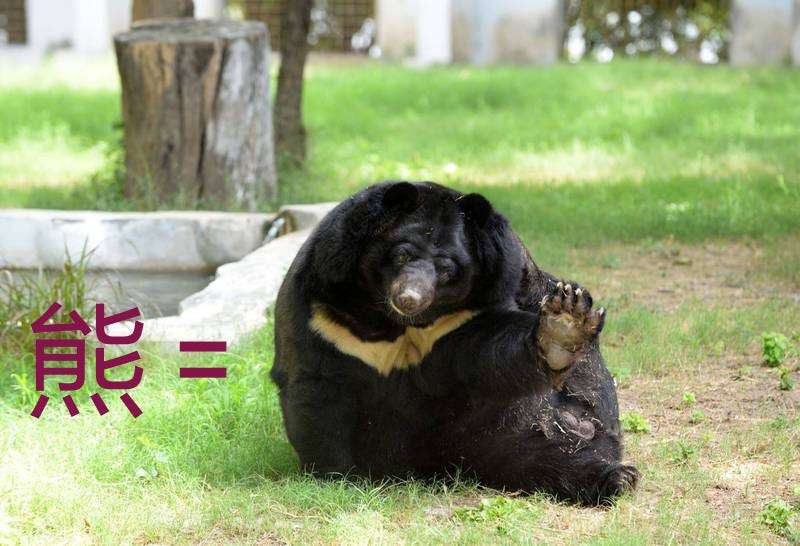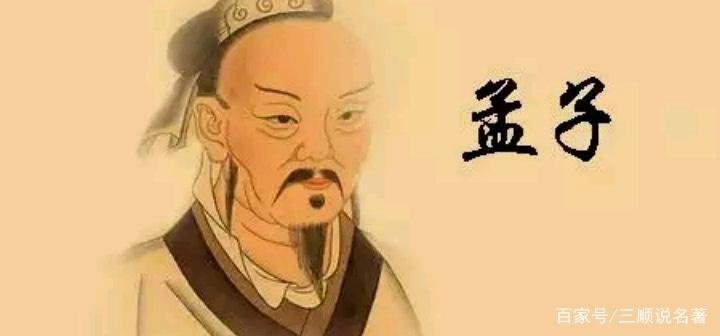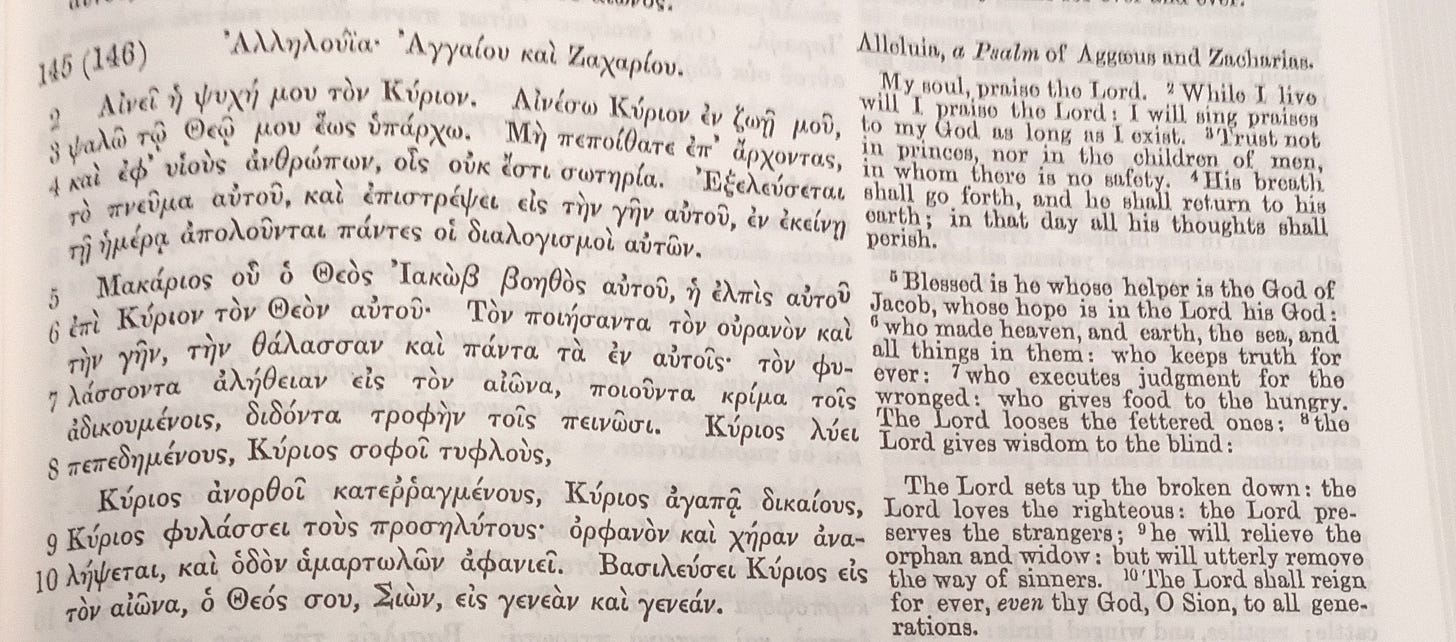The lexicography of neng 能
Hushai said moreover, ‘You know that your father and his men are mighty men, and that they are enraged, like a bear robbed of her cubs in the field.’ (2 Sam 17:8)
Neng 能 is yet another standard first-year Mandarin learner’s vocabulary word. It is the 35th most common character in modern written Chinese. It carries the basic glosses of ‘can’, ‘able to’, ‘possible’, ‘ability’, ‘potential’ and ‘energy’. It appears in all sorts of common and technical compound words like dianneng 电能 ‘electricity’; dongneng 动能 ‘kinetic energy’; heneng 核能 ‘nuclear energy’; (bu)keneng (不)可能 ‘(im)possible’; jineng 技能 ‘technical skill’; nengli 能力 ‘ability’, ‘competence’; quanneng 全能 ‘almighty’ or ‘omnipotent’; and wuneng 无能 ‘useless’ or ‘incompetent’. The Erya links neng 能 functionally to the character ke 克, which has the classical-era glosses of ‘able’, ‘to conquer’, ‘to vanquish’ or ‘to restrain’. And it also, rather confusingly, links the character to a ‘three-legged tortoise’ 鱉三足. Don’t ask me the significance of that—I literally can’t find any other reference for this than that in the Erya.
The character neng 能 derives from a pure ideogram which signifies the image of a bear (in modern Chinese, the derived character xiong 熊). During the switch from etchings on tortoise-shells to bronze, the character underwent some modification. The bear’s head is symbolised by a ‘moon’ (yue 月), the hump of the shoulders by a ‘self’-enclosed circle (si厶), and the two legs by two ‘spoons’ (bi匕). The ideogram thus bears resemblance (pun intended!) to the character for ‘deer’ (lu 鹿). We know from Xu Shen’s Shuowen jiezi that neng 能 originally signified a specific kind or species of bear. The overwhelmingly likely candidate is the Asiatic black bear or ‘moon bear’, which has a moon-shaped crescent below its neck that could easily have inspired the yue 月 graphical formation of the bear’s head in bronze inscriptions and later.
However, this same character quickly became adapted to mean anything or anyone physically powerful—or a person who has strength or ability or virtue. This is how Mencius uses it here:
孟子曰:「尊賢使能,俊傑在位,則天下之士皆悅而願立於其朝矣。」
Mencius said, ‘If a ruler give honour to men of talents and virtue and employ the able, so that offices shall all be filled by individuals of distinction and mark – then all the scholars of the kingdom will be pleased, and wish to stand in his court.’
Mencius 《孟子》 3.1
And also Mozi, as here:
今王公大人亦欲效人以尚賢使能為政,高予之爵,而祿不從也。
The present ruler, imitating the ancients, also want to employ the virtuous in government by exalting them. Ranks given them are very high, but the emoluments do not follow proportionally.
Mozi 《墨子》 2.4
From this usage, neng 能 evolved into its more abstract and more familiarly modern glosses of ‘can’, ‘ability’, ‘capability’, ‘potential’, ‘strength’ and ‘energy’ in general.
知其心,然後能救其失也。
When a teacher knows the character of his mind, he can save the learner from the defect to which he is liable.
Book of Rites 《禮記》 18.10
There is another sense in which the term neng 能 is used to as a verb to mean ‘help’ or ‘assist’. This is how it is used in the Book of Odes:
柔遠能邇、以定我王。
Then let us show kindness to those who are distant, and help those who are near;—
Thus establishing [the throne of] our king.
Book of Odes 《詩經》, Decade of Sheng Min 生民之什, ‘Burdened Folk’ 民勞 1
The trajectory of the adjective or abstract noun neng 能 which functions as ‘having energy’, ‘having power’ or ‘having strength’ into the helper-verbal function of the English ‘can’, mirrors at least partially the trajectory of the Quranic Arabic root m-k-n م ك ن ‘to establish’, ‘to empower’ (possibly related to or derived from the Hebrew k-w-n כ-ו-ן ‘to be firm’, ‘to establish’ or ‘to set up’, and used in the word mākôn מכון ‘foundation’, ‘habitation’, ‘dwelling-place’, cognate to Arabic makān مكان) which functions in the modern Arabic construction min al-mumkin ’an من الممكن أن ‘can’, ‘may’, ‘it is possible’.
Fun related fact: the English word ‘may’ actually has a similar etymological trajectory to min al-mumkin ’an من الممكن أن and neng 能, being related to the word ‘might’—not only the ‘might’ glossed ‘perhaps’ but also the ‘might’ glossed ‘strength’. The Old English words mæg and miht, through the early Germanic roots *magan and *mahtiz, actually derive from the same reconstructed proto-Indo-European root, *megh, which pertains to both the possibility or allowance of being able to do something, and to the physical strength or capability necessary to do it.
But notice that in the Semitic languages, these are not ascribed in their first instances to a person or an animal. The usage of neng 能 which I cited from the Book of Odes, for example, is made by well-intentioned people attempting to establish the justice of an earthly king, seated in the centre of a state. True enough, in the Kǝtubim Solomon decides he’s going to do the same thing (1 Kings 8:13), and much ado is made of this attempt. But the results don’t work out so well… and one can very easily point to the Spring and Autumn Annals to show how Confucius comes to the same conclusion in the end as the authors of the books of Kings. But within the Scriptural canon, the first instance of this root m-k-n מ-כ-ן is seen in the Book of Exodus:
תּבאמו ותטּעמו בּהר נחלתך מכון לשׁבתּך פּעלתּ יהוה מקּדשׁ אדני כּוננוּ ידיך׃
Thou wilt bring them in, and plant them on thy own mountain, the place, O LORD, which thou hast made for thy abode, the sanctuary, O LORD, which thy hands have established. (Exo 15:17)
The abode of the Lord is not built by human might. That’s the point. David might try his luck, as Solomon might try his, as might the kings of the Zhou Dynasty, but their efforts have already ended in the same way all such efforts end. Human establishments are upended, human institutions are weakened, and human foundations crumble to dust. That is the way things have always happened.
So when the paeans reach your ears, from the two deluded political parties that are currently vying for the presidency, that are dedicated to buildings, to sacred temples, to citadels of democracy—no matter whether it’s AOC saying it or Netanyahu, Pelosi or Trump, all representing two sides of the same debased neoliberal coin—understand that what you are listening to, from the standpoint of Scripture, is the voice of human vanity. It is the voice of idolatry. The abode of actual justice, of true freedom, of real solidarity, may not be shaped by human hands. The Syriac hieromonk Aluoben said it quite aptly: Yi jian duoshao shei neng shuo 異見多少誰能說 ‘With [everyone] seeing something more or less different, who can say?’ Moses climbed a mountain hewn, not by the hands of man but by the Hand of the unseen God: the only place where His true shape could be seen (and only then, from the back!).
What human beings may and can do, is to hear Moses when he comes back down. Hear the wisdom of the literature that bears the name of the lovely and chaste Miss Ḥikmah, despite its having been written by (doubtless) very flawed and sinful Bronze Age people who had seen way too much. Or, if you cannot do that, hear the voice of Mahmoud Darwish, or of Bassem Youssef, or of Muḥammad al-Māghūt. It’s the same message. It’s the message that every Orthodox Christian Divine Liturgy sings during the Second Antiphon: ‘Trust not in princes, nor in the children of men, in whom there is no safety.’ (Ps 145:3)









